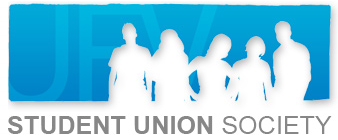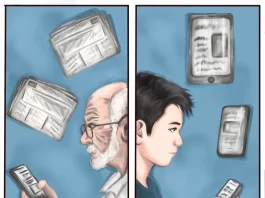By Daniel van der Kroon (SUS VP-Academic) – Email
Print Edition: June 20, 2012
For the benefit of our members, this article is to outline some of the costs and benefits of belonging to the Canadian Alliance of Student Associations (CASA).
During the 2011/2012 Board Year (April 2011 – March 2012), the SUS was a full member of the Canadian Alliance of Student Associations. At the end of April this year, the (new) board voted to move down to associate membership of CASA. Questions have been raised as to why this was done, why we are members of CASA in the first place, and what other considerations are involved. I don’t know if I can do it justice in a short article, but I’ll do my best.
First, it is my duty to warn you, dear SUS member: CASA is a lobby group. CASA’s primary purpose is to sit down and meet with federal politicians (and staff if necessary) and convince them that as the foundation of tomorrow’s economy, students are important and warrant greater attention and policies that are friendlier to students overall. If you’re looking for sex, intrigue, scandal, controversy, or anything of that ilk, you won’t find it here. With that said, CASA is relevant to you as a SUS member in direct, quantifiable ways.
One of CASA’s most important functions is that it creates a national framework that forms a direct conduit to federal decision-makers. All of us live inside a massive federation of provinces called Canada, and are often impacted by decisions coming from Ottawa – by tax rates, grants, subsidies, tax credits and student loan debt ceilings.
When issues come up that impact students, CASA has the ability to directly communicate to the relevant federal politicians and tell them what students feel should be done. Last year, CASA advocated for the removal of import duties on textbooks, for the removal of restrictions on student loan access for would-be students who own personal vehicles valued at $5000 and above, and more.
This year, SUS president Carlos Vidal has just returned from CASA’s Transitions conference in Winnipeg, where delegates from post-secondary institutions from various regions of the country gathered to learn about CASA as an organization, and started to strategize for the upcoming fiscal year.
Last year, CASA’s membership premium cost SUS just over $22,000 out of our roughly $680,000 budget, plus roughly $6400 in conference-related costs. This year, increases to CASA’s fee structure would have resulted in an increase to the membership premium to about $31,000, plus conference costs. With the move to “associate member” status, we will pay just over $15,500 for the membership premium. Conference costs will depend on how many delegates we send. We will not have voting rights, and next year, SUS will have the choice to either bump back up to full membership, or leave the organization altogether. In recognition of the UFV SUS’s need to control costs, CASA has agreed to waive conference registration fees for the upcoming year, so the drop to associate level, contrary to the number reported in the May 23 issue of The Cascade, will in fact save SUS $15,500.
On April 25, CASA’s national director Zachary Dayler visited UFV to present on CASA’s value to UFV and answer questions of the membership and board. This marked an opportunity for our members to directly engage with the lobby group that represents them federally. Going forward, SUS intends to ensure that, in addition to urging specific policy choices the federal government can make to ensure increased access to post-secondary education, UFV students are kept abreast of developments affecting students at the federal level. With this approach, SUS will enable large cost-savings while still having a federal voice for the upcoming board year.
I could write much more about CASA, but considering space constraints, I want to close by asking our members to consider how it is that Canada’s students are represented at the federal level by two large and influential lobby groups (the other being CFS – the Canadian Federation of Students), and yet cumulative student debt values continue to rise and post-secondary education in Canada does not approach the level of accessibility that it enjoys in much of Europe.
Some will see this as evidence that the student lobby is not strong enough and needs more backing, while others will argue it is ineffective and that each step forward that is widely acclaimed (such as CASA’s claimed hand in in the creation of various tax credits) is accompanied by two steps back that fly under the radar.
With the latter view, SUS is probably better off eschewing the federal lobby altogether and saving that $30,000+ in budget room, while with the former view continuing to send delegates to conferences to meet with government officials and urge changes is a crucial activity for SUS to be involved in.
I invite and urge UFV students to stop me in the hallways or visit the SUS offices in C building to tell me what they think is the correct way of seeing the issue.




